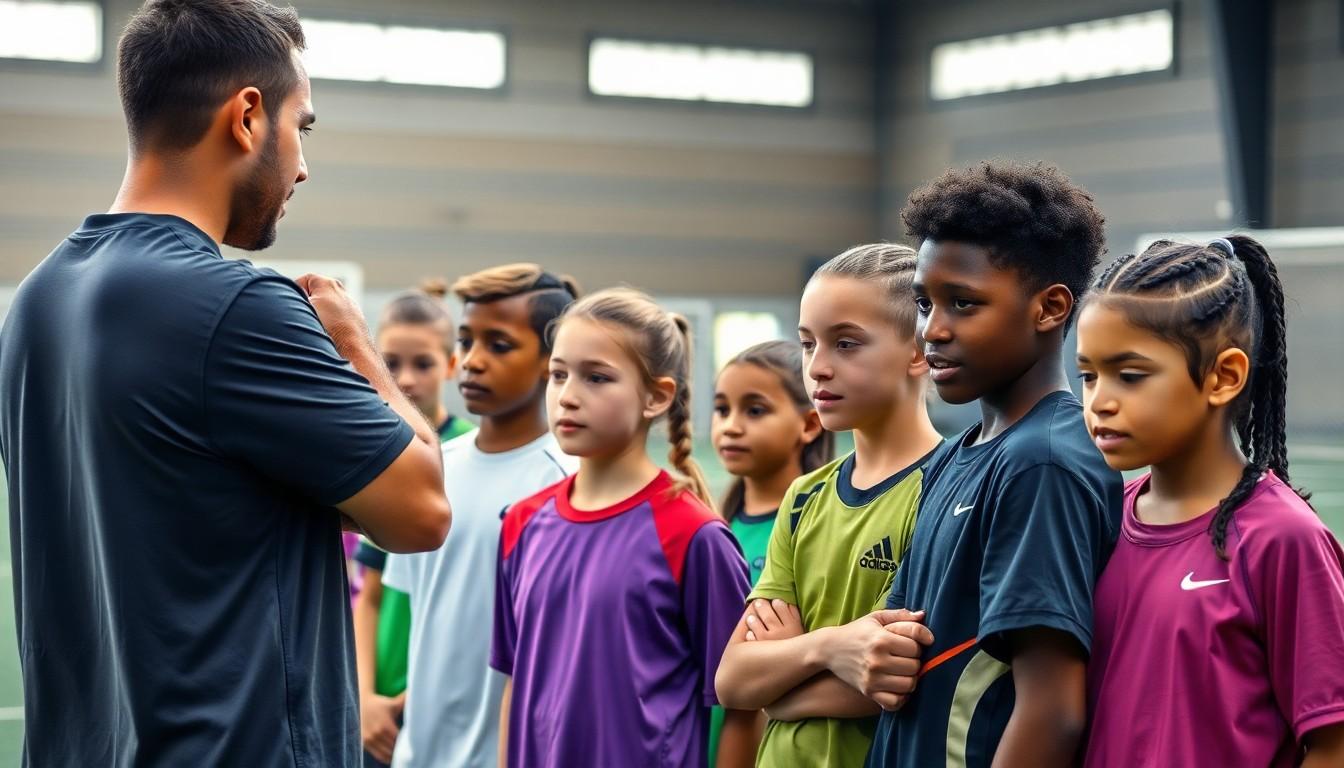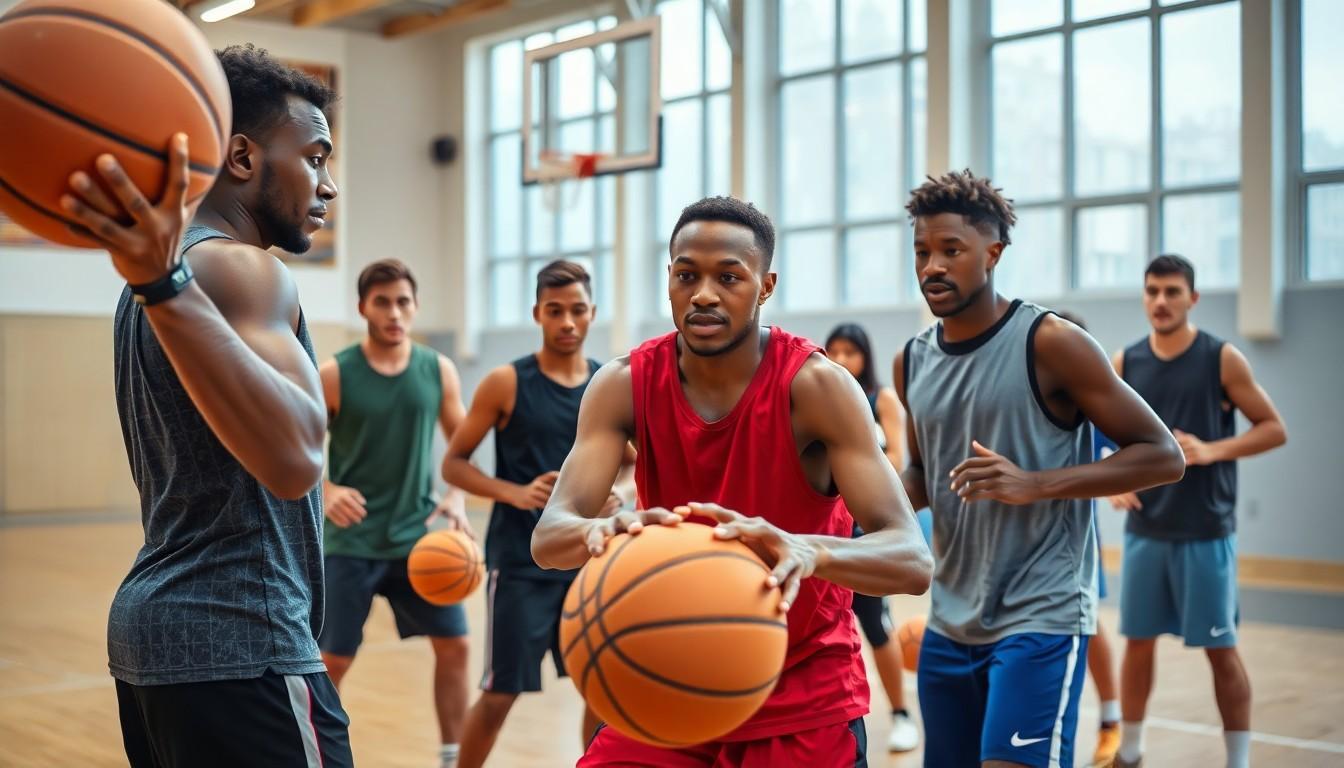Phone:
(701)814-6992
Physical address:
6296 Donnelly Plaza
Ratkeville, Bahamas.

In the ever-evolving world of sports, a player development program isn’t just a luxury—it’s a necessity. Think of it as a secret sauce that transforms raw talent into superstar potential. Whether it’s honing skills on the field or mastering the mental game, these programs are designed to turn aspiring athletes into well-rounded competitors.
Player development programs play a vital role in sports, facilitating the progression from raw talent to elite performance. These structured frameworks aim to improve technical skills, strategic understanding, and psychological resilience. Tailored training sessions often include individual skill drills and team-based tactics, ensuring athletes receive comprehensive guidance.
Moreover, programs focus on physical conditioning to enhance endurance, strength, and agility. Nutrition education also becomes part of the training, as proper dietary habits support overall performance and recovery. Regular assessments of performance metrics provide valuable feedback, allowing athletes to track progress and set new targets.
Mentorship forms a crucial aspect of these programs. Experienced coaches create personalized plans, cultivating talent through one-on-one interactions. This direct engagement builds trust and offers athletes an opportunity to learn from those who excelled in their respective sports.
In addition to physical development, mental conditioning strategies are integrated. Visualization techniques and mindfulness training help athletes maintain focus during high-pressure situations. Cultivating a winning mentality often pushes competitors to overcome challenges and improve their game performance.
Ultimately, establishing a nurturing environment leads to the overall development of the athlete. Peer collaboration encourages teamwork and builds camaraderie, enhancing the relationship between athletes. Through structured player development programs, aspiring athletes gain the tools to succeed and reach their full potential in their chosen sport.

Player development programs play a critical role in shaping the future of aspiring athletes. These programs foster both skill enhancement and personal growth, ensuring that athletes become well-rounded competitors.
Skill enhancement acts as the foundation for athlete development. Programs focus on improving technical abilities through specialized drills and exercises. Coaches design tailored training sessions, targeting individual strengths and weaknesses. Athletes learn strategic concepts that empower them to make informed decisions during competition. Integrating physical conditioning, including strength and agility training, optimizes overall performance. Through performance assessments, athletes can track their progress and adjust their training accordingly. Technical growth fuels confidence, fostering a competitive edge in various sports.
Personal growth emerges as a vital component of player development. Programs emphasize mental conditioning, helping athletes build resilience. Strategies like visualization techniques enhance focus and support a winning mentality. One-on-one interactions with mentors nurture trust and encourage meaningful relationships. Peer collaboration is encouraged, facilitating camaraderie among teammates. This supportive environment fosters leadership skills and emotional intelligence. Athletes learning to overcome challenges in training translate their growth to competitive scenarios. Personal development equips them with crucial life skills that extend beyond sports.
Effective player development programs incorporate several essential components that facilitate athlete growth. Each component plays a critical role in transforming potential into performance.
Various coaching methods contribute to athlete development, focusing on individualized approaches. Techniques such as positive reinforcement motivate players to achieve their objectives. Relationship building between coaches and athletes fosters trust and enhances communication. Incorporating video analysis provides immediate feedback, helping athletes refine their skills. Workshops and seminars on mental toughness inspire resilience and commitment. Overall, a diverse coaching strategy ensures athletes receive well-rounded support throughout their journey.
Structured training regimens form the backbone of successful player development programs. These regimens often include drills that target specific skills, enabling athletes to hone their techniques. Strength and conditioning workouts improve physical capabilities, enhancing overall performance. Flexibility training ensures athletes prevent injuries and maintain peak condition. Nutrition plans tailored to individual needs support energy and recovery. Regular assessments track progress and adapt training regimens accordingly, ensuring athletes remain on target for their goals.
Several successful player development programs demonstrate best practices in nurturing talent. FC Barcelona’s La Masia emphasizes a holistic approach, blending technical skills with personal development. This renowned academy has produced superstars like Lionel Messi and Xavi Hernandez by focusing on individual growth through tailored training regimens and mentorship.
Another exemplary program is the NBA’s G League. The G League supports young players through structured gameplay and professional coaching. Athletes benefit from direct competition against seasoned players, gaining experience crucial for their development and enhancing their game intelligence.
USA Swimming provides a comprehensive player development framework that targets both competitive excellence and health. This program includes athlete education on nutrition and mental toughness, ensuring swimmers develop resilience. Coaches implement regular assessments to track progress, making them accountable for continued improvements.
The U.S. Soccer Development Academy (DA) prioritizes player-centric training environments. By fostering game intelligence and creativity, it develops future stars for the national team. Every athlete receives individualized coaching, ensuring skills complement team dynamics.
Active participation in training sessions shapes player experiences in the National Junior College Athletic Association (NJCAA). The association emphasizes academic success alongside athletic training. Student-athletes engage in regular skill drills, conditioning workouts, and performance reviews to balance academics and sports.
On an international scale, the Australian Institute of Sport (AIS) excels in developing elite athletes across various disciplines. A blend of sport science, psychological support, and physical training is employed. Each athlete adheres to a meticulously planned program aimed at maximizing potential.
Each of these programs showcases the significance of structured training, mentorship, and environment in effective player development.
Player development programs face several challenges that can hinder their effectiveness. First, limited resources often restrict the availability of facilities, coaching staff, and training equipment, impacting the overall quality of the program. Next, inconsistent participation from athletes creates challenges in skill progression, making it difficult for coaches to assess and tailor training effectively.
Communication gaps between coaches and athletes also present obstacles. Misunderstandings regarding feedback can lead to a lack of clarity, causing frustration and hindering development. Retaining talented coaches proves challenging as well, particularly when they seek better opportunities elsewhere, which affects continuity and trust in mentorship.
Balancing individual athlete needs with team goals complicates program dynamics. Mismatched expectations can lead to conflicts, as some athletes may prioritize personal achievements over collaborative success. Furthermore, integrating mental conditioning into physical training remains difficult, despite its importance in enhancing performance under pressure.
Managing expectations from parents and spectators adds another layer of stress. Athletes often feel pressure to perform, which can lead to burnout or a decline in motivation. Staying updated with evolving sports science and training methodologies also poses a challenge. Coaches and programs that resist change may fall behind, as they may not adopt innovative practices that could enhance player development.
Addressing these challenges requires deliberate strategies. Programs must emphasize resource allocation, facilitate open communication, and prioritize continuous education for both coaches and athletes. Establishing a supportive environment fosters resilience, helping athletes navigate the ups and downs of competition while maximizing their potential.
Player development programs play a pivotal role in shaping the future of aspiring athletes. By combining skill enhancement with personal growth these programs create a comprehensive approach to training. They not only focus on technical abilities but also nurture essential qualities like resilience and teamwork.
Through structured frameworks and personalized coaching athletes receive the support they need to excel. The integration of mental conditioning and physical training helps them perform under pressure while fostering a winning mindset. As challenges arise in the development process addressing them with effective strategies ensures that these programs remain impactful.
Ultimately a well-rounded player development program is crucial for transforming potential into performance. With the right resources and support athletes can thrive and reach their goals in the competitive world of sports.